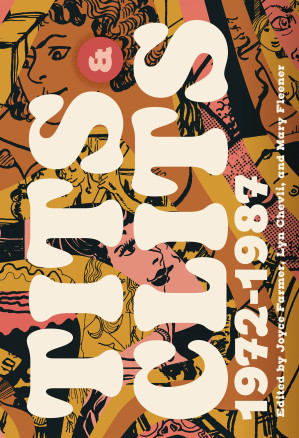English [en], .pdf, 🚀/zlib, 80.7MB, 📕 Book (fiction)
Tits & Clits 1972-1987. 🔍
Fantagraphics Books., 1, 1, 2023
Joyce Farmer, Lyn Chevli, Mary Fleener. 🔍
description
In 1972, underground cartoonists Joyce Farmer and Lyn Chevli produced Tits & Clits — a funny, rowdy, raucous underground comix series about female sexuality that one reviewer described as “the ultimate in vaginal politics” — and became the first American women ever credited with writing, drawing, and publishing their own comic books.A feminist answer to Zap, Tits & Clits quickly became an anthology showcase for other women cartoonists, featuring the work of Mary Fleener, Roberta Gregory, Krystine Kryttre, Lee Marrs, Carel Moiseiwitsch, Trina Robbins, Dori Seda, among others. Like other underground comix, Tits & Clits leaned into being lewd in order to satirize women’s experiences with so-called sexual liberation. Featuring stories about birth control, abortion, menstruation, masturbation, and more, Tits & Clits featured intimate politics which occasionally clashed with contemporaneous feminist concepts about sex and sexuality. As Chevli put it: their work had something to offend everyone. (In 1973, conservative legal authorities in Orange County deemed their work pornographic and even threatened the two editors with arrest on obscenity charges.)Now, for the first time in half a century, a new generation of readers will be shocked, entertained, enlightened, and scandalized by the bold satirical cartoonists that comprised the band of sisters in Tits & Clits. In addition to reprinting the seven-issue run of the Tits & Clits series, this collection also includes in their entirety two classic solo comics from 1972 written and drawn by Farmer and Chevli — Abortion Eve and Pandora’s Box. Also included is an introductory essay providing context to Tits & Clits’ place in the history of women’s cartooning by the book’s editor, Samantha Meier.
date open sourced
2023-10-15
🚀 Fast downloads
Become a member to support the long-term preservation of books, papers, and more. To show our gratitude for your support, you get fast downloads. ❤️
- Option #1: Fast Partner Server #1 (recommended) (open in viewer) (no redirect) (short filename) (no browser verification or waitlists)
- Option #2: Fast Partner Server #2 (open in viewer) (no redirect) (short filename)
- Option #3: Fast Partner Server #3 (open in viewer) (no redirect) (short filename)
- Option #4: Fast Partner Server #4 (open in viewer) (no redirect) (short filename)
- Option #5: Fast Partner Server #5 (open in viewer) (no redirect) (short filename)
- Option #6: Fast Partner Server #6 (open in viewer) (no redirect) (short filename)
🐢 Slow downloads
From trusted partners. More information in the FAQ. (might require browser verification — unlimited downloads!)
- Option #1: Slow Partner Server #1 (slightly faster but with waitlist)
- Option #2: Slow Partner Server #2 (slightly faster but with waitlist)
- Option #3: Slow Partner Server #3 (no waitlist, but can be very slow)
- After downloading: Open in our viewer
External downloads
All download options have the same file, and should be safe to use. That said, always be cautious when downloading files from the internet, especially from sites external to Anna’s Archive. For example, be sure to keep your devices updated.
-
For large files, we recommend using a download manager to prevent interruptions.
Recommended download managers: JDownloader -
You will need an ebook or PDF reader to open the file, depending on the file format.
Recommended ebook readers: Anna’s Archive online viewer, ReadEra, and Calibre -
Use online tools to convert between formats.
Recommended conversion tools: CloudConvert -
You can send both PDF and EPUB files to your Kindle or Kobo eReader.
Recommended tools: Amazon‘s “Send to Kindle” and djazz‘s “Send to Kobo/Kindle” -
Support authors and libraries
✍️ If you like this and can afford it, consider buying the original, or supporting the authors directly.
📚 If this is available at your local library, consider borrowing it for free there.
Total downloads:
A “file MD5” is a hash that gets computed from the file contents, and is reasonably unique based on that content. All shadow libraries that we have indexed on here primarily use MD5s to identify files.
A file might appear in multiple shadow libraries. For information about the various datasets that we have compiled, see the Datasets page.
For information about this particular file, check out its JSON file. Live/debug JSON version. Live/debug page.
